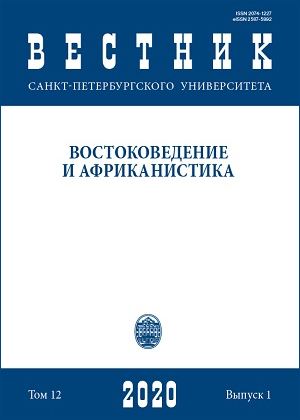The Role of Bureaucratic Politics in Egypt’s Africa Policies under Mubarak. Part Two
DOI:
https://doi.org/10.21638/spbu13.2020.109Аннотация
Принятие решений в Египте во время правления президента Хосни Мубарака осуществлялось преимущественно им самим и небольшой ключевой группой советников, которую он назначал и распускал. Ближе к концу своего правления президент Мубарак уже не был способен достаточно эффективно выполнять свои обязанности. Тем не менее, часть вопросов была отдана на откуп профильным министерствам. Бюрократический аппарат получил возможность существенно влиять на внешнюю политику, особенно в тех областях, которые не представляли особого интереса для правящей элиты. В этом контексте, проблема нильского водопользования — наиболее яркое воплощение процесса принятия решений в египетской внешней политике при президенте Мубараке. Цель статьи — исследовать роль институтов в проблеме водопользования. Исследование стремится показать, что главную роль в переговорах по рамочному договору о совместном водопользовании играло министерство водных ресурсов, а не министерство иностранных дел. Также в исследовании говорится о «бюрократическом противостоянии», происходившем в то время. Из-за него египетской стороне пришлось столкнуться со значительными трудностями во время переговоров. Таким образом, продолжаются споры о том, что бюрократический аппарат, несмотря на свое подчиненное положение, является частично ответственным за неудачные результаты внешней политики Египта во время правления президента Мубарака.
Ключевые слова:
процесс принятия решений, бюрократическая политика, политика в Африке, политика Египта в Африке, министерство иностранных дел Египта, прези- дент Мубарак, проблема нильского водопользования
Скачивания
Библиографические ссылки
Загрузки
Опубликован
Как цитировать
Выпуск
Раздел
Лицензия
Статьи журнала «Вестник Санкт-Петербургского университета. Востоковедение и африканистика» находятся в открытом доступе и распространяются в соответствии с условиями Лицензионного Договора с Санкт-Петербургским государственным университетом, который бесплатно предоставляет авторам неограниченное распространение и самостоятельное архивирование.





